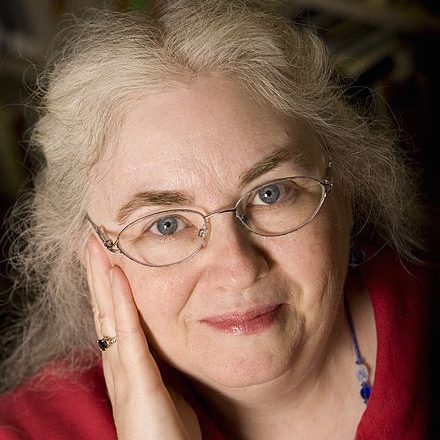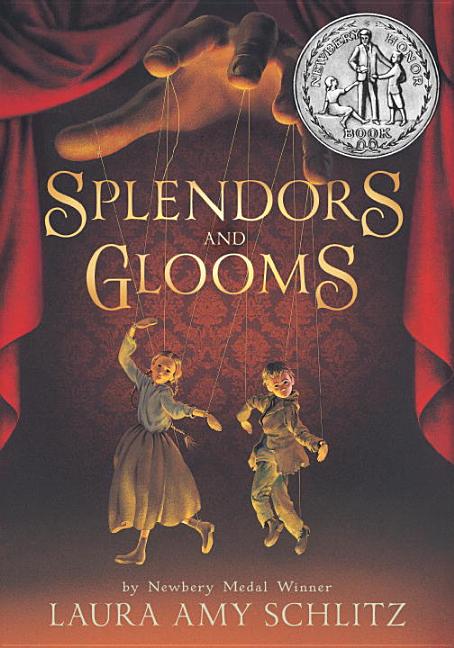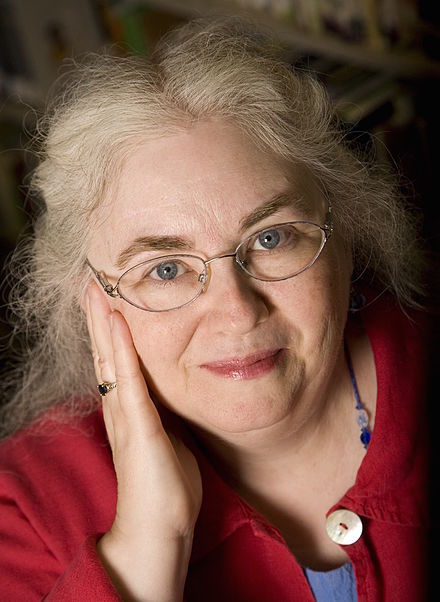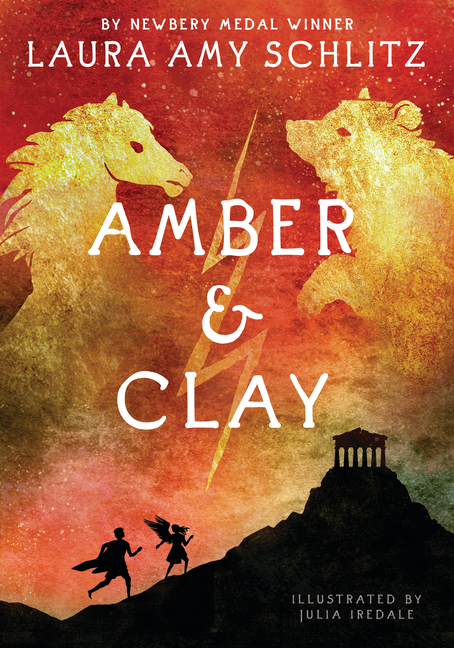
Some Books Want to Be Written
by Laura Amy Schlitz
Some books want to be written. They refuse to go away. They nag. I like to joke that Amber and Clay (Candlewick, 2021) went to other writers first, and tried to get them to write it. The other writers had sense enough to say no.
I honestly believe this might be true. Some people think that ideas come from within, but I’m in the other camp. Ideas exists beyond us. They are Questing Beasts, teasing us to hunt them down. Sooner or later a writer says, “All right, I’ll bite,” and after that, the chase is on.
In 1996, I wrote a play for my Park School children to perform. It was about Sokrates, the fifth-century Greek philosopher. I wanted to share him with young thinkers. I loved his humor, his unexpected questions, the way he could spin my thoughts like a tilt-a-whirl. The play was probably too hard for fourth graders, but they struggled through valiantly.
Years passed. From time to time, I toyed with the idea of writing a picture book biography about Sokrates. Maybe it could have lift-the-flap questions and answers? Or secret panels of translucent plastic?…I never got serious. I had no idea how to make it work. Then one day I looked in the waiting room where hopeful ideas sit, waiting for a writer to claim them. There was only one idea in the room: the Sokrates book.
With a sinking heart, I knew that I was going to have to do a lot of research. Since research is a good way to put off writing, I bought books about Ancient Greece (about seventy) and read them. I borrowed books from the library. I reread The Dialogues. I drew maps. I made timelines.
I discovered I didn’t like the Greeks of the fifth century. I didn’t like their attitude toward women. I didn’t like it that they were always waging war. I didn’t like it that they had slaves, and I was horrified by how those slaves were treated. I decided that my real protagonist would not be Sokrates, but an enslaved Thracian who is referred to only as “Boy” in Plato’s Meno.
I was also impressed. You can’t learn about the Greeks without being staggered by their creativity, their hardiness, their eagerness to try something out-of-the-box new. I was astounded by them, but for a long time, I didn’t like them. And some of those scholarly books bored me to the napping point.
A wise friend said to me, “Sometimes, when you love something and hate it at the same time, you’re standing on holy ground.”
Hmm. What did that mean?
I wrote a few chapters and tried them out in a writers’ group. The other writers were as sweet a group of women as you could corral together, but they couldn’t find anything nice to say. I didn’t quit the book. I quit the writers’ group.

I sent the manuscript to a friend, my most trusted reader, the man who could put his finger on exactly what was wrong with my early drafts of Splendors and Glooms (Candlewick, 2012.) He wrote back kindly, suggesting I put the manuscript in a drawer and write something else. I hated his guts. I cried for days.
I tried—and failed—to learn Greek. That was a turning point for me. Greek is hard. Sometimes it feels like there isn’t enough room in your mouth for your tongue and your teeth and all those syllables. But I loved the language. There were rhythms in it, there were struggles in it. Something inside me was waking up.
I read Bettany Hughes’ biography about Sokrates. Almost in passing, the book mentioned that there were young girls who served the goddess Artemis as bears. I love bears. I was electrified: Oh, I have to write about that! But I was already committed to Sokrates and my Thracian boy, Rhaskos. Where would the bear-child come in? The bear priestess would come from an aristocratic family. My main character was a slave. Boys did not spend time with girls in Ancient Greece. Aristocrats did not socialize with slaves.
At the time I was worrying over this, my generous publisher sent me to a booksellers’ convention in New York. Candlewick authors stayed at the Library Hotel, which assigns a call number to each room. I spent the night in the Paranormal Room. There were ghost books on the shelves and photographs of seances on the wall. I had the most fantastic Aha! moment in that room. My slave-boy and my bear-girl could meet and talk as equals if one of them was a ghost.
When I went to Greece, I fell in love with the land. By that time, I was on fire, but my drafts were ashes. One day, in an attempt to shake the cobwebs from my mind, I decided to write from the point of view of the god Hermes—I have always loved Hermes. I used free verse. For the first time, I found myself liking what I wrote. So I messed around with verse, copying Greek forms, beating out finger-rhythms on my desk. At one point, I found myself wanting to change a woman into a dolphin. Why not? I thought. When will I get another chance to change a woman into a dolphin? I spent hours at the aquarium, watching the dolphins swim.
To sum it up, Amber and Clay is my most intuitive and accidental book. It insisted on being written, and then it played with me. It fought me, but it didn’t fight me every step of the way. It reminded me of those brain-teaser puzzles made of wood and steel. You’re supposed to untangle them, and you can’t see any possible way to do it. Then, when your mind is busy with something else, your hands figure it out—only you don’t know how you did it. This book was a puzzle and a gamble and an adventure. I am proud of it.

Text and images are courtesy of Laura Amy Schlitz and may not be used without express written consent.


Leave a Reply